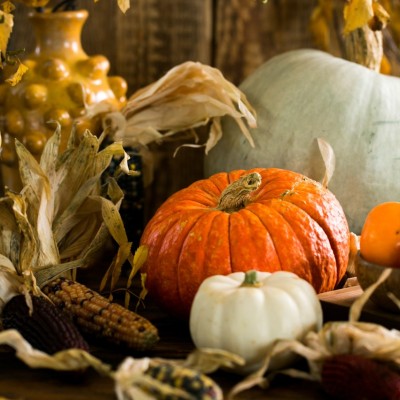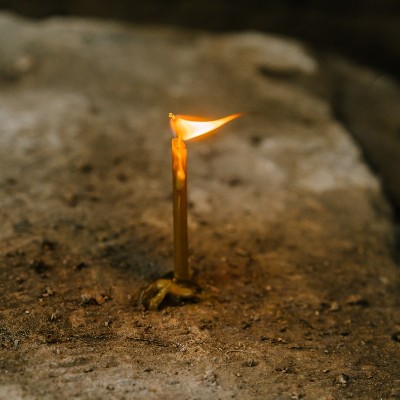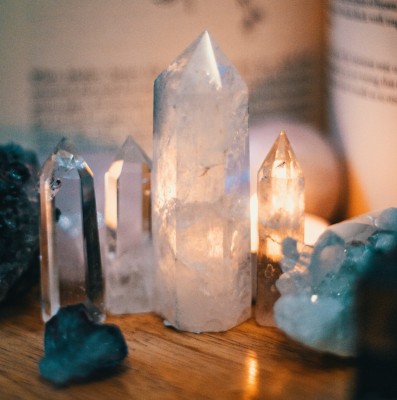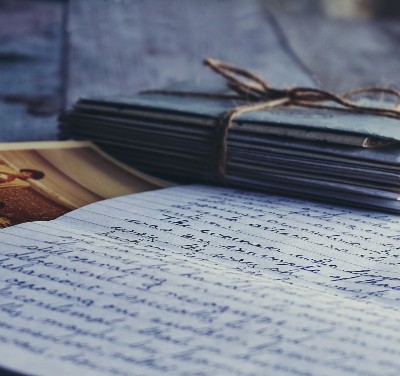 While I’m not a big fan of most mainstream holidays, I really do love Thanksgiving. I think part of this stems from the fact that it’s a holiday that really stays in its own lane. We’re inundated with heart-shaped everything around Valentine’s Day and the patriotic porn of the Fourth of the July just rings hollow and Halloween has become a juggernaut and don’t even get me started on the madness that’s Christmas.... but Thanksgiving has remained kind of chill. There’s not the stress and complicated logistics of trying to see absolutely everyone, the way there is with Christmas, and there are no overtones of doom as sometimes happens at birthdays. The opinion factor doesn’t factor in the way it does with weddings, we’re not participating in a ritual for a religion we don’t actually belong to, and there’s no gift-giving pressure.
While I’m not a big fan of most mainstream holidays, I really do love Thanksgiving. I think part of this stems from the fact that it’s a holiday that really stays in its own lane. We’re inundated with heart-shaped everything around Valentine’s Day and the patriotic porn of the Fourth of the July just rings hollow and Halloween has become a juggernaut and don’t even get me started on the madness that’s Christmas.... but Thanksgiving has remained kind of chill. There’s not the stress and complicated logistics of trying to see absolutely everyone, the way there is with Christmas, and there are no overtones of doom as sometimes happens at birthdays. The opinion factor doesn’t factor in the way it does with weddings, we’re not participating in a ritual for a religion we don’t actually belong to, and there’s no gift-giving pressure.
It probably helps that I really like to cook, so a celebration that largely centers around food is definitely in my wheelhouse. We have an enormous dining room table that has, over the years, been able to seat many, many people who otherwise might not have had a place to go; my notion of “family” becomes very expansive this time of year. Most of all, I appreciate that everyone can find something to be grateful for.
There’s a lot of information out there about the positive effects of practicing gratitude. It’s something that can and should be a part of everyday life, not just Thanksgiving; but it can also be hard to summon if you’re feeling weighted down by day-to-day cares, stress, job, bills, etc. Especially in the last year and half, it’s been really easy to look around and see all the things that aren’t quite what they ought to be, all the family events we’re missing, the friends we can’t see, the jobs that evaporated, the uncertainty surrounding everyday interactions. Whether it makes you tired or sad or angry or defiant or whatever, there’s no getting away from the fact that we’ve lost a lot since the pandemic started. But there’s always room for gratitude, even if the best you can do is “I’m thankful it isn’t even worse.”
I realize this isn’t the case for everyone: there’s a reason there are so many jokes about obnoxious uncles talking politics at the Thanksgiving table. For people who struggle with family issues, the holidays can feel like a months-long nightmare. Some people feel isolated or lonely. Not everyone feels surrounded by abundance. If there’s one thing I’ve learned over the last decade, it’s the power of being able to break with expectations and make something your own. Quite often, our table includes chosen family rather than blood relatives. We have our own rituals and traditions leading up to it. Thanksgiving has gone from a day I endured to one of the highlights of my year, a day when I can gather in the people that shape all the other days of my life and show them how grateful I am for their presence.
Years ago, my friend had this quote as part of the signature line in her email: At times our own light goes out and is rekindled by a spark from another person. Each of us has cause to think with deep gratitude of those who have lighted the flame within us - Albert Schweitzer
May this season be a time for you to fan your flame.

The November full moon has many names: the Frost Moon, the Fog Moon, the Beaver Moon, the Mourning Moon. Regardless of the name, it always means that something is ending. We’re used to this from the seasons, of course. The leaves are falling from the trees in earnest, the harvest has been gathered, the days are getting shorter and the nights longer. Literally everything around us in the natural world is closing up shop. Standing at the leading edge of another dark season – after another undeniably dark year – it could be easy to feel surrounded by gloom.
It's not just light and warmth that we let go of, however. It’s also a time to let go of the past year, to let go of any fear or negativity that’s lingering, to let go of the habits and mindsets that held us captive as we struggled to find a new normal in a changed world.
Every major religion in the world has a holiday about light, celebrating the turning of the world toward the sun and the gradual lengthening of the days. Happy as we are to celebrate light, no living thing can sustain growth without a time to lie still and rest. Without nightly sleep, our days quickly become undoable; without a day off work, our jobs become unbearable; without a season of dark and cold, nothing can germinate in the silent earth to spring forth later. We can’t make room for the new until we’ve cleared away the old.
What do you need to let go of? What will you make room for?
- Do a ritual to help you end something that no longer serves you. Use gemstones such as lapis lazuli or topaz; cypress, alder, or hazel; or seasonal herbs such as verbena and fennel.
- Work on deepening your connection to an element of your practice, whether it’s working with a deity, honing your divination skills, working more closely with your cards – anything you’ve been meaning to spend more time and effort on.
- Decorate your altar or space in your home with seasonal items to reflect acceptance of the changed world around us. Do a thorough cleaning before the weather changes and you can’t open the windows anymore.
- Make your peace with any losses from the past year, including the loss of someone beloved. Take time to properly mourn your losses; we so often want to rush through the expression of our emotions as if they’re an inconvenience.
- Focus on self-care and renewal, clearing the slate for the new things to come. Freshen your heart and mind in preparation for the holidays ahead.
- Ritually burn a paper with the names of things you want to let go. Consider the things you wish to take their place.

Rather than focusing on a specific theme, this month’s kit is all about helping you add a solid foundation of crystals to your work. Crystals can help you focus, and can amplify and direct energy during rituals or spellwork. They’re small enough to carry around if needed, and they’re a beautiful accent to have in your home or work space.
This month’s kit includes:
Clear quartz is one of the most versatile, powerful, multipurpose crystals in the world. It’s known for absorbing, storing, releasing, and regulating energy – whatever you pour into it will come back tenfold. It’s an aid to memory and concentration, and is widely used in healing and cleaning. No spellcasters kit is complete without one!
Citrine is associated with prosperity, abundance, and positivity – all qualities we’re looking for more of. It’s a healing stone associated with the third eye chakra, so reach for this to boost your ability to perceive clearly, tap into your intuition, and turbo-charge your confidence.
Amethyst promotes serenity and calm; it was long used as a healing stone to help reduce a patient’s perception of pain. Use it during meditation to calm your mind and help you connect the mundane with the divine. Amethyst is associated with the third eye and crown chakras and can help you tap into your intuition and inner wisdom.
Hematite is a grounding and stabilizing stone, known for absorbing negative energy and offering protection. It’s used to support the healing of your body and bring you back into equilibrium. Use hematite to keep you safe and grounded in any situation.

Sometimes there’s a confluence of events that make you realize you need to stop procrastinating and get started on that bucket list item right now. This November is one such confluence: here in the season of endings and letting go of old baggage, it’s not only National Novel Writing Month (NaNoWriMo) but also National Life Writing Month (sometimes called Memoir Month). And that means that the best way to clear your mental slate and get ready for the new year ahead is to go ahead and write it all down.
I’m not suggesting the only way to do this is to tackle the considerable challenge of the 50,000-word NaNo standard. Nor am I telling you to write an entire memoir. Consider, however, that your life has been shaped by many people and events, and writing them down might be a very powerful way to make sense, come to terms, and move past some things that keep you from moving ahead. It’s also a way to help you identify things that have sustained, encouraged, enlightened, comforted, and uplifted you in the past. We’re all surrounded by unacknowledged mentors and turning points only seen in hindsight. Why not take some time to celebrate those as you bring the year to a close?
Unlike an autobiography, in which a famous person shares facts about their life, a memoir is a way for the writer to talk about their own experience as an illustration of a larger idea of theme. If you’ve identified some kind of universal experience that’s shaped you, how can you honor it? A few suggestions:
- Write a letter (or email) thanking someone for a way they’ve contributed to your life. This doesn’t have to be long or detailed – a few sincere lines to a former teacher, mentor, friend, co-worker, neighbor, or whoever will be much appreciated. Don’t hesitate to thank those mentors that have passed on.
- Consciously gather with others that shared a meaningful time or experience (virtually or in person) and shared those memories. With Thanksgiving just around the corner, this could provide some wonderful dinner conversation.
- There are many journals available that have questions or structured writing exercises about specific parts of your life. Commit to completing one.
- Share a skill or knowledge with someone else, in the spirit in which that knowledge was given to you.
- Add a nostalgic dish to your holiday table.
- Add ancestor work to your spiritual or magical practice.
- Is writing not your jam? Play that person’s favorite song, visit a shared spot, paint or draw something that reminds you of them, or otherwise express your emotions nonverbally.
- Feeling ambitious? Sign up for a memoir writing class at a local college, community education program, or online.
 The image that comes to mind when you hear “teacher” probably depends a lot on your personal experiences; it might call to mind an especially encouraging teacher, or one that put you down in a way you never forgot. You might think of learning a skill at a parent’s side, or an instructor from a yoga class that taught you to enjoy living in your body, or someone in your life that taught you a lesson outside of any kind of formal setting. The point is, we’re surrounded by teachers all the time. We can draw lessons from anything and everything that happens to us, including “wow, that was a terrible idea and I should never do that again.”
The image that comes to mind when you hear “teacher” probably depends a lot on your personal experiences; it might call to mind an especially encouraging teacher, or one that put you down in a way you never forgot. You might think of learning a skill at a parent’s side, or an instructor from a yoga class that taught you to enjoy living in your body, or someone in your life that taught you a lesson outside of any kind of formal setting. The point is, we’re surrounded by teachers all the time. We can draw lessons from anything and everything that happens to us, including “wow, that was a terrible idea and I should never do that again.”
Some of our teachers are people or situations we choose: pursuing formal education, training for a new job, taking a fitness class, diving deep into a hobby, volunteering in our communities, taking part in a faith community. Others are just things that happen to us (uh, Covid, anyone?). I guess we could put this in the category of “life lessons”- how to let go of grief, how to walk your own path, adulting in general – the things we learn when we’re not necessarily intending to.
When we’re kids, we’re like sponges absorbing the knowledge and experiences around us. As we get older and our lives get more complicated, learning might not be as straightforward. Sometimes we think that once we’ve graduated we’re done learning things. But learning is an essential human function; it keeps us alive (literally) and growing and engaged in the world; research on aging even shows that the brains of people who continue learning and interacting with the world have more in common with people who are decades younger.
Whether it’s formal learning, hobby learning, or life lessons, the decision to think of yourself as a learner means that you’re keeping yourself open to the outside world and being an active part of your own life. That can be an incredibly powerful mental shift during a time when it’s easy to feel that things are happening TO you without your input or interest. We don’t always want to learn the lessons that are waiting for us!
October 6 has been designated as World Teacher Day by the United Nations Educational, Scientific, and Cultural Organization, a specialized agency within the United Nations that promotes peace and collaboration between countries. The organization recognizes that the entire world relies on teachers in order to function. We count on teachers to teach us to read or do math or understand the world around us. Other teachers have shown us how to cook a meal, drive a car, do our jobs, and generally function in the world. Remember the sourdough craze of 2020? YouTube, Zoom, and TikTok made teachers and learners of many of us.
Knowing that learning is a fundamental part of life, how can you honor the teachers who have shaped you?
